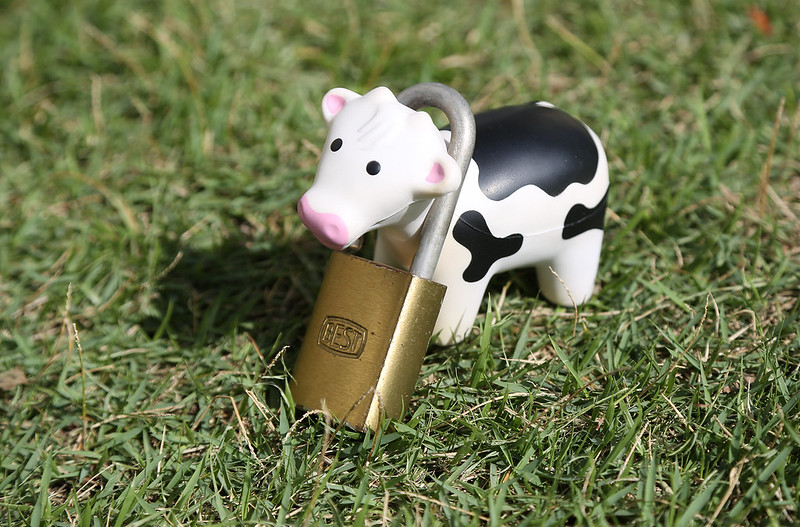Cattle rustling thriving in northwest Arkansas
By the U of A System Division of Agriculture
Fast Facts:
-
- Branding and registering brand, can help the law ID boosted bulls, heisted heifers
- Heists reported in Arkansas, Texas and Missouri
(550 words)
LITTLE ROCK – Ranchers in Arkansas, Missouri and Texas are finding that cattle rustling isn’t just a crime of the Old West.
Newton County, Arkansas, Sheriff Keith Slapes said cattle had been stolen in the Compton, Pruitt, Yardelle and Nail areas, with more than a dozen cattle disappearing overnight or when the owners were away, the Newton County Times reported Tuesday.
Last month, Texas law enforcers had corralled a fourth suspect in a September cattle heist in Harrison County, and in March, cattle were reported stolen in Polk County, Missouri.
“You may have thought cattle rustling was a thing of the past, a common theme in old western movies,” said Troxel, associate head-Animal Science, for the University of Arkansas System Division of Agriculture, “but nothing could be further from the truth.
Rustlers can strike overnight by gathering a group of cattle, sometimes by using dogs, loading them into a trailer or truck and hauling them away to a livestock sale – all without being noticed, he said.
“There’s that terrible feeling a beef cattle producer gets when he or she checks on the cattle the next day and they are all gone,” he said.
An ounce of prevention
Troxel said there are ways to protect cattle against rustlers.
“As old fashioned and outdated a practice as it seems, branding is still one of the best ways to protect your animals,” he said. “Even with all the technology today, branding is the best way to permanently identify cattle.”
Be sure to register the brand with the Arkansas Livestock and Poultry Commission and that can help law enforcement ID stolen cattle.
Troxel also suggests these tips to prevent thefts:
-
- Visit your cattle every day and count heads. The earlier you know they’re missing, the better chance authorities will have of finding them.
- Never visit your cattle the same time every day. Change your daily routine. Cattle rustlers will take note of your daily routine.
- Take time to inspect the outside fence. Look for spots that were cut and haphazardly repaired. Look around for tire tracks, footprints, horse prints, etc., and if you find anything suspicious, preserve the evidence for authorities.
- Report suspicious vehicles. If you see an unfamiliar truck being driven slowly, someone may be scouting your pasture. Report the incident to local law enforcement. Contact neighbors and let them know about the incident.
- It’s important to know local law enforcement officers and their telephone numbers.
- If possible, keep calves away from easy road access. An all-weather road can be a friend to a cattle rustler. Cattle rustlers can’t afford to get stuck in mud or waste time.
- Chain and lock gates.
Cattle, unlike most other stolen property, can be sold for full value at weekly livestock auctions.
“Often, a sale barn owner may recognize cattle brought to their barn as belonging to somebody else,” Troxel said. “But the victim of cattle rustling can’t always rely on the owner to report a heist. The rustler may take the stolen cattle to a livestock auction in another location or state.”
Livestock theft of more than $200 is a Class C felony punishable by a fine of up to $10,000 and a prison term from three to 10 years, according to Troxel.
For more information on livestock production contact your county extension office or visit www.uaex.uada.edu.
The Arkansas Cooperative Extension Service is an equal opportunity institution. If you require a reasonable accommodation to participate or need materials in another format, please contact your County Extension office (or other appropriate office) as soon as possible. Dial 711 for Arkansas Relay.
Pursuant to 7 CFR § 15.3, the University of Arkansas System Division of Agriculture offers all its Extension and Research programs and services (including employment) without regard to race, color, sex, national origin, religion, age, disability, marital or veteran status, genetic information, sexual preference, pregnancy or any other legally protected status, and is an equal opportunity institution.
# # #
Media Contact: Mary Hightower
Dir. of Communication Services
U of A Division of Agriculture
Cooperative Extension Service
(501) 671-2126
mhightower@uada.edu
Related Links
